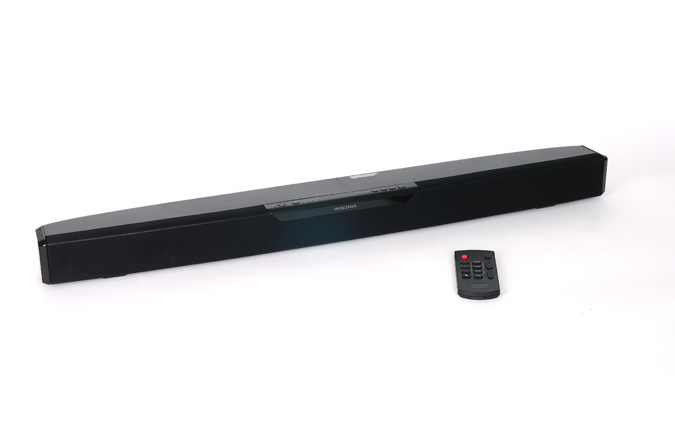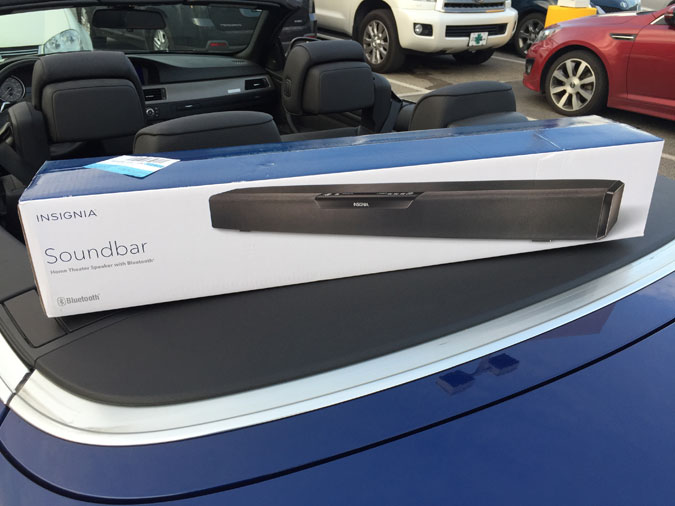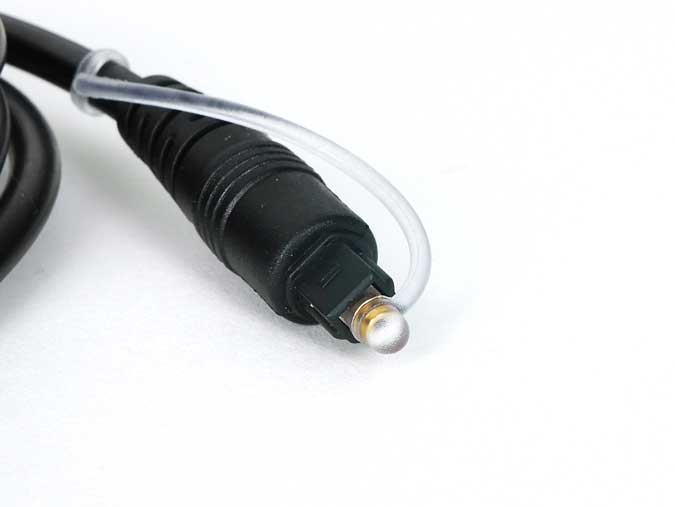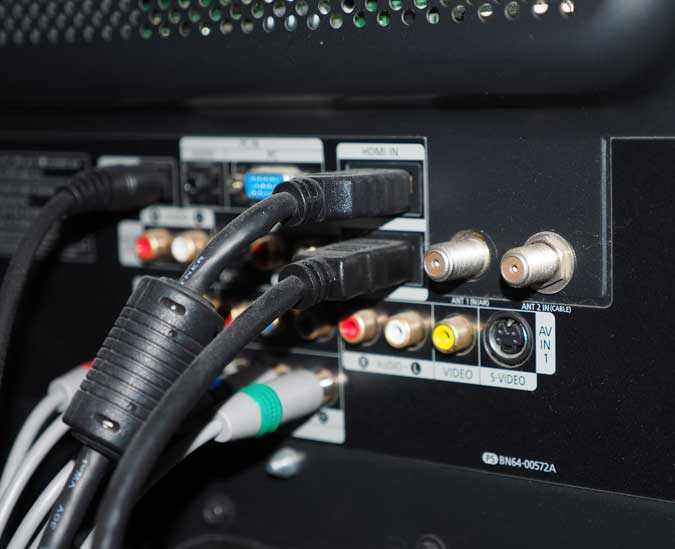
The Insignia NS soundbar -SB314 was one of my most popular recommendations last year. While it’s not a high-end product, it does sound nice and makes your TV much easier to listen to. That’s all many consumers want, and with an MSRP of $99 and frequent retail prices of $49-$79, it’s a very good buy.
You can do it!
If you can plug in and use a hair dryer, you can set this soundbar up. This page will show you how easy it is. All you need to do is make two easy connections and press a few buttons.
Other brands may apply
This setup guide may also help to set up another brand of soundbar, although the buttons and input location may be different.
Let’s Get Started
I borrowed content from my home page ZVOX SoundBase setup so I can get this page up a little faster.
What you need

Of course, you need the soundbar. Here is mine on the way home from Best Buy the day I found one on sale and decided to give it a try. I had no idea what I’d be starting that day!

Unfortunately, it only comes with analog cables and you’ll get the best results with an optical digital cable, as shown above. This cable shouldn’t cost more than $10, and I recommend a length of one foot to 6 feet. It’s better to have some extra wire to tuck in, rather than one that’s live.
You can find some at this link: Digital Optical Cables
Step 1: Position the sound bar in front of the TV
First, place the soundbar in front of the TV. Pretty easy.
Step 2: Connect the optical cable to the TV

As you can see in the image above, the optical cable connector is shaped to only fit one way. You remove the protective cap before inserting the cable.

You probably already have HDMI cables connected to your TV. These cables carry the image and sound. In this case, a cable box and a Blu-ray player are connected. This is how it should be, and nothing changes here.

Find the optical digital output connection on the back of the TV. You can see what it looks like in the image above.

Connect one end of the optical cable to this connection. It will click firmly into place.
Step 3: Connect the optical cable to the soundbar

Locate the optical digital input on the back of the bar Sound. You can see it in the image above. It’s “OPTICAL SOURCE 1” on the far right.

Connect the other end of the optical cable to this input, as shown above. It will snap firmly into place.
Step 4: Connect the soundbar

Connect one end of the power adapter to the soundbar (shown above) and the other end to Wall. Pretty easy!
Step 5: Turn down the volume on your TV speakers

Turn the volume of your TV speakers down to zero. You want the soundbar to produce full sound.
Step 6: Set the TV’s audio output to PCM

Access the TV’s setup menus and find the optical output settings digital audio. Set it to PCM.
If you’re wondering what PCM stands for, it’s “pulse code modulation” which, for lack of a better term, is a generic digital audio signal. It does not require special decoding like Dolby Digital or DTS formats.
Step 7: Using the remote control
Turn on the sound bar, then select the input using the remote control or the buttons on the top. It’s SOURCE 1 OPTICAL on the left, below the red power button. When you select it, the soundbar will begin to output sound.

As you can see, in the middle there are three different sound settings. Use “News” if you want understand voices better. Bass adjustment is just below and volume is on the right. Mute button is just above volume.
Don’t have an optical connection?

The bar The sound box comes with stereo RCA cables that can be connected to the audio output on your TV or cable/satellite box, however, you’ll get better results with optics.
.
